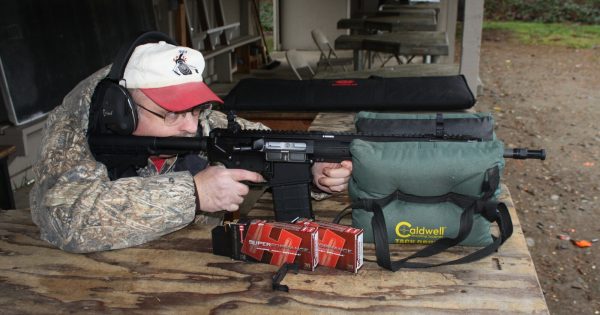
In a case that could either uphold a federal law prohibiting legal actions against firearms manufacturers or potentially knock it cockeyed, the U.S. Supreme Court has “cleared the way” for families of several victims in the Sandy Hook school massacre to sue Remington Arms and Bushmaster.
CBS News and other news agencies were quick to report the high court’s decision to not hear the case, which allows the lawsuit to move forward in Connecticut state court.
But Alan Gottlieb, founder and executive vice president of the Second Amendment Foundation, told Liberty Park Press via e-mail, “While the high court chose not to hear the case at this time I am sure that if a final verdict goes against Remington it will be back before them.”
“This suit is just plain wrong and should never have been allowed to proceed,” he added.
At issue is whether Remington and Bushmaster marketed the rifle used by Sandy Hook mass killer Adam Lanza in a way that it would “court high-risk users at the expense of Americans’ safety,” a term used by attorney Joshua Koskoff, with Koskoff, Koskoff & Bieder.
Earlier this year, the Connecticut state Supreme Court, in a split decision, said the lawsuit could proceed, but Remington took the case to the federal level.
But the legal speed bump is supposed to be the Protection of Lawful Commerce in Arms Act (PLCAA), passed in 2005 by Congress during the Bush administration.
Gottlieb noted that the high court already has seven gun cases “sitting in front of them,” one that it has accepted and six others that it has yet to decide whether to accept for review. He believes eventually the Remington case will work its way back up to the court, so while this may cost Remington more time and money, this case is far from over.
According to NBC News, the Connecticut case “has been closely watched by gun rights supporters and gun control advocates across the country, with many pointing to it as having the potential to affect other cases accusing gunmakers of being responsible for mass shootings.”
When the Connecticut Supreme Court allowed the lawsuit to continue earlier this year, ABC News noted that the plaintiffs “argued that the manufacturer, distributor and seller of the weapon negligently entrusted to civilian consumers an assault rifle that is suitable for use only by military and law enforcement personnel and violated the Connecticut Unfair Trade Practices Act (CUTPA) through the sale or wrongful marketing of the rifle.”
But therein could be a problem for the plaintiffs. Lanza did not personally purchase the rifle he used in the school shooting. That firearm, and others, were purchased legally by his mother, Nancy, under Connecticut statute, which was strong at the time and has been made even stiffer. She was also one of his victims, killed in her home before Lanza took her guns to commit the mass shooting.
Remington had appealed to the U.S. Supreme Court, CBS noted, contending that it should be protected by the PLCAA. That law was adopted to protect the firearms industry from what had become a series of so-called “junk lawsuits” filed by various municipalities in an attempt to hold gunmakers responsible for crimes committed in their communities by people using guns. Courts consistently ruled against these lawsuits, which other industries—especially the automobile industry—were watching closely.
In theory, if a gun manufacturer can be held responsible for a crime committed by an end user over which industry has no control, then it could open the door for car crash victims or their families to sue automakers for deaths resulting from DUI or speeding drivers, for example.